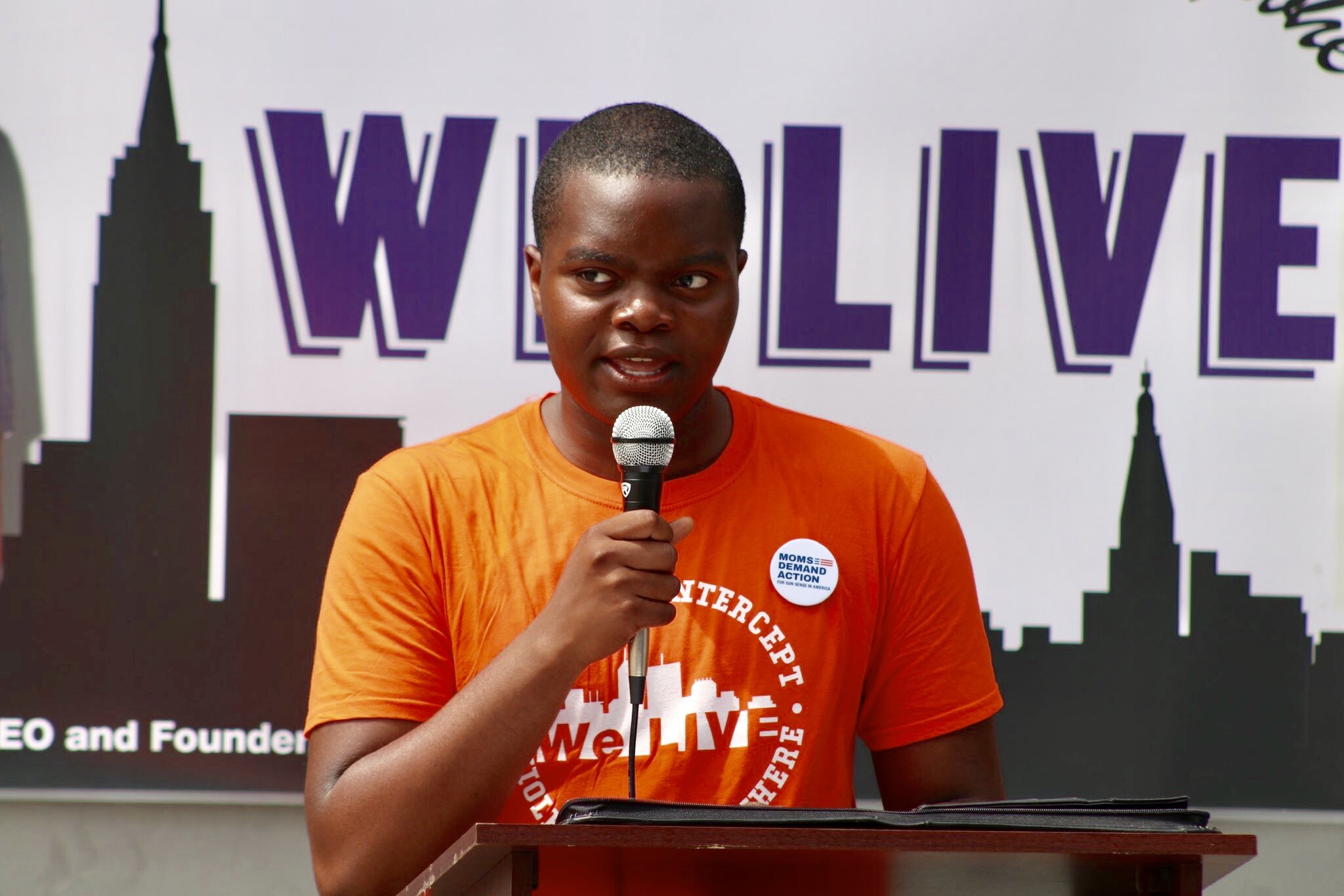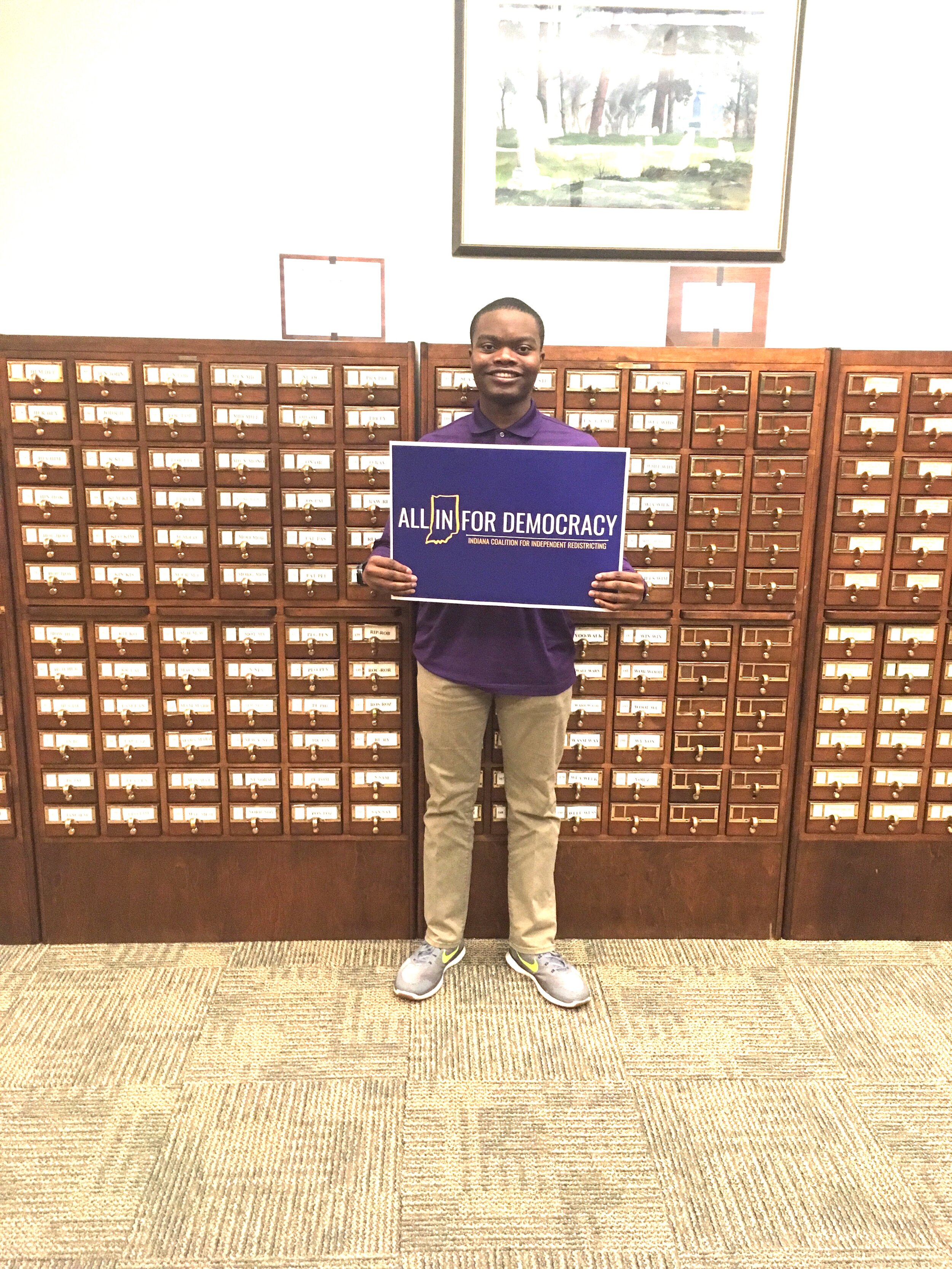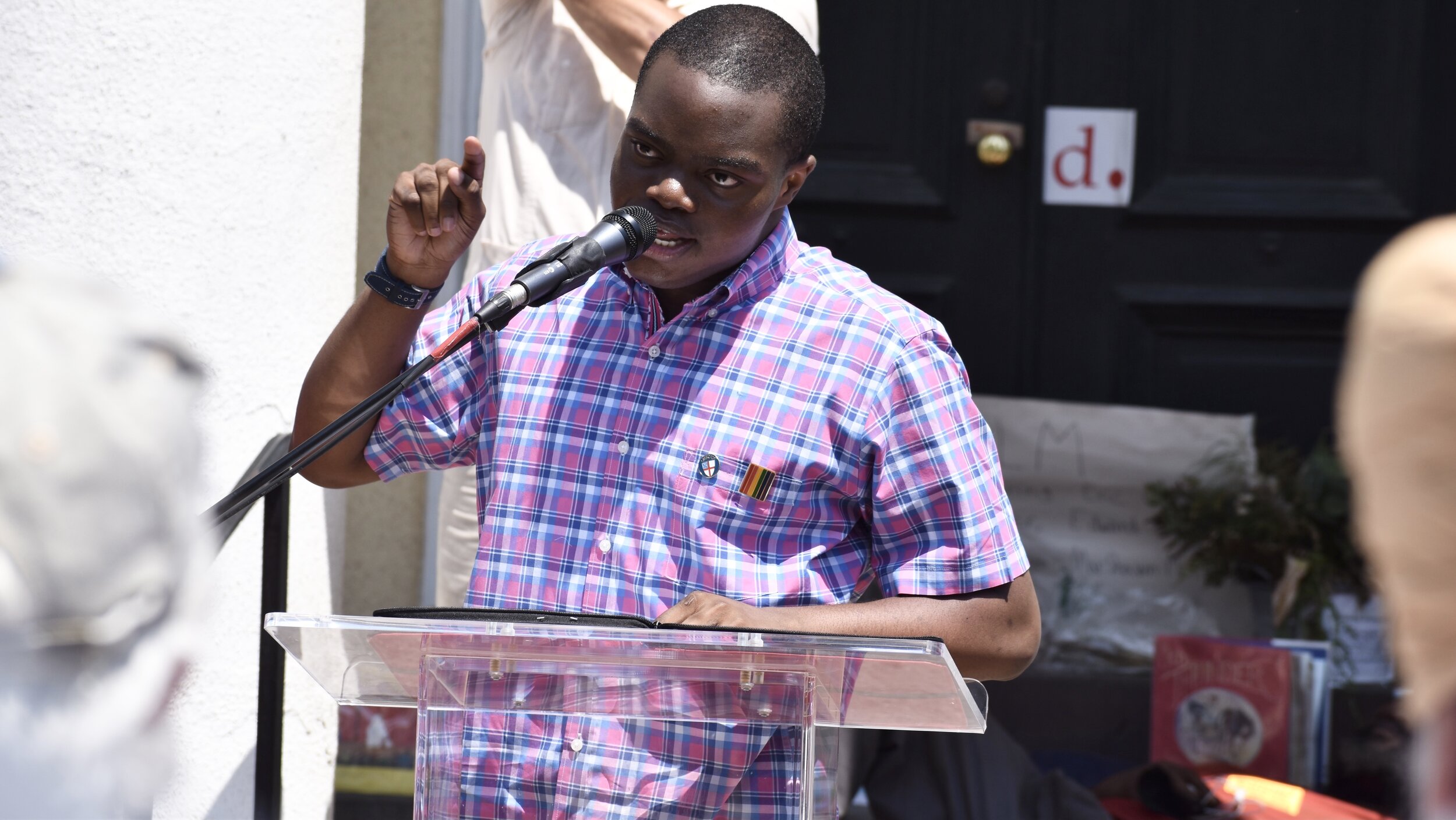Reflections on the Fight for Fair Maps
By Christian Omoruyi
“There are two Americas. One America is beautiful for situation. In this America, millions of people have the milk of prosperity and the honey of equality flowing before them. This America is the habitat of millions of people who have food and material necessities for their bodies, culture and education for their minds, freedom and human dignity for their spirits. In this America children grow up in the sunlight of opportunity. But there is another America. This other America has a daily ugliness about it that transforms the buoyancy of hope into the fatigue of despair.”
Martin Luther King Jr. made this observation in one of my favorite speeches that he delivered shortly before his death. His words lamentably still ring true today. The pandemic has exacerbated several societal divisions. The revival of a racial justice movement unseen in magnitude since the civil rights era has drawn attention to a neglected America subordinated to mainstream America. Strikingly, the notion of two Americas extends to our politics as well. Polarization has riven the nation into opposing factions. Whether at family Thanksgivings or at statehouses and the halls of Congress, the beliefs and discourse of “red” America have become unintelligible to “blue” America and vice versa. The riot at the Capitol on January 6th rawly distilled the danger that one America irreconcilably antagonized from the other poses to the very bedrock of our democracy.
As I immersed myself in American history in high school, our nation’s defining motto captivated me: E pluribus unum. Out of many, one. One people, quilted in a wondrous tapestry of diversity, with one shared destiny. Yet, the contemporary state of our politics negates this foundational belief. It seemed to me like politics was a gladiatorial bloodsport rather than a deliberative commons to address pressing challenges. The political system felt hopelessly rigged to me, a system that rewards not competent legislators, but uncompromising politicians who are more interested in maintaining social media celebrity status and throwing red meat to their respective bases.
I was determined to play a role in confronting the perverse factors that have contributed to widespread disillusion, cynicism, and tribalistic partisanship and help bridge the chasm between our two Americas. Assiduous research made clear to me that one of the culprits in our current mess is gerrymandering. As you may be aware, gerrymandering occurs when legislators in statehouses like ours manipulate the boundaries of legislative districts with the intent of giving their political party an unfair electoral advantage. Gerrymandering is in essence an election in reverse: politicians choose their voters. This corruption of democracy makes most legislative districts electorally uncompetitive, which emboldens obstructionist politicians who cater to the ideological fringes while depressing turnout among voters who justifiably concede that election outcomes are foreordained. Studies have shown that Indiana is one of the worst gerrymandered states in the country, and our voter turnout rates are consequently lackluster.



In October 2017, the Indianapolis City-County Council met to consider a resolution urging the Indiana General Assembly to pass redistricting reform that would curtail politicians’ power to draw maps. Upon hearing about the meeting, I resolved to make my voice heard by highlighting an often overlooked youth perspective. I wanted the councilors to know that unfair and unrepresentative district boundaries have a disillusioning effect on young people who forgo voting and view our political system cynically because they feel that their votes are meaningless. I wanted them to know that the political sclerosis gerrymandering contributes to depresses young people’s views towards democracy: only 30 percent of young people believe it is essential to live in a democracy, a worrying indication of civic disenchantment.
So I nervously testified before the Council to voice my support for the resolution with all the passion I could muster. I thought that my idiosyncratic remarks, which invoked the Federalist Papers and Black novelist James Baldwin, were okay. But, to my astonishment, they made a lasting impression on the adult attendees, many of whom were seasoned advocates. This is how I connected with Rima and the fantastic, gracious Women4Change team, which has rooted for me ever since. The surprising impact of my words inspired me to argue the case for redistricting reform in the trenches of the Indiana General Assembly. In the 2018 and 2019 legislative sessions, I testified before the Senate Elections Committee in favor of proposed bills that would have instituted redistricting standards with the hope that gerrymandering in our state would not be as brazen as it has been in the past. The committee passed the bills both years, and the whole Senate approved them too. The House unfortunately stonewalled the respective bills, leaving them to die. Undaunted, I lobbied legislators—including the president pro tempore of the Senate—while at home after my first semester of college.
Although we have not secured legislative progress when it comes to fair redistricting, we must continue to make what the late civil rights icon John Lewis described as “good trouble.” This upcoming special session of the General Assembly, whose sole focus will be redistricting, provides a golden opportunity for Hoosiers to put our legislators under scrutiny and hold them accountable for wheeling and dealing. It may sound trite, but meeting with your local legislators and their staff in accordance with public health guidelines can sway minds and catalyze action. I also encourage you to arouse agitation in your community by taking steps such as writing letters to the editor or a guest essay for your town paper. We have the power to forge a future in which our politics ceases to be a corrosive positive feedback loop that cyclically emboldens ideologues and reinforces two dueling Americas rather than the one America imagined by our foremothers. I firmly believe that with fairer maps, we can aspire to a politics where legislators actually legislate and compromise is not equated to capitulation. Let’s harness this once-in-a-decade opportunity to make Indiana the fulcrum of one reconciled America with true equality and justice for all.
Christian Omoruyi is a third-year student at American University, where he is a distinguished Global Scholar. He is pursuing a major in International Studies with a concentration in global and comparative governance.


